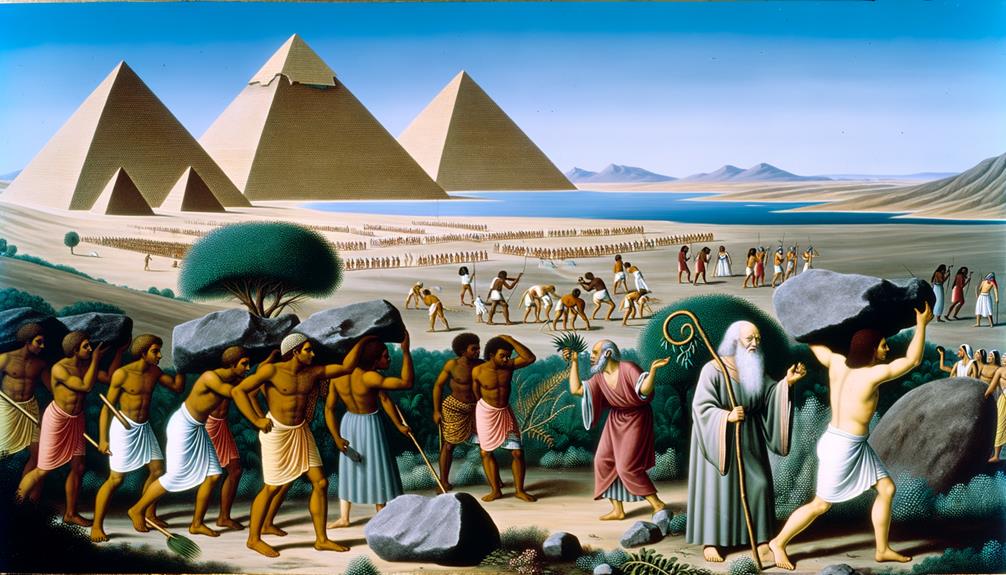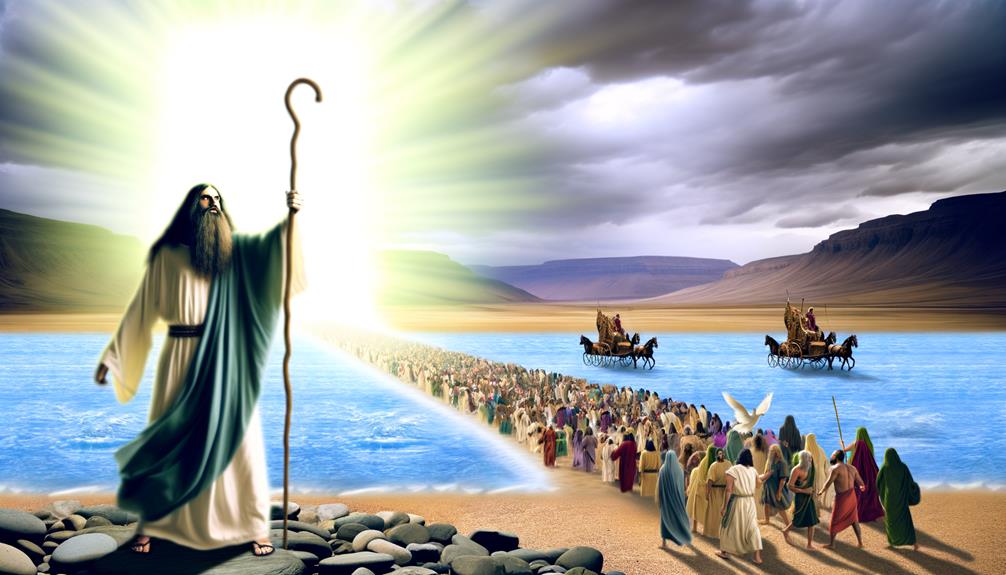Meaning of the Book of Exodus in the Bible: Redemption
The Book of Exodus in the Bible is a profound narrative that interweaves themes of liberation, divine covenant, and emergent identity against the intricate historical and sociopolitical tapestry of ancient Egypt and the Near East. It depicts the Israelites’ journey from bondage to freedom, underscored by God’s intervention through plagues and miracles, and culminates in the establishment of a covenant at Mount Sinai, framing the Israelites’ moral and spiritual ethos.
Central to this account is Moses, whose leadership and resilience are pivotal. The text not only reflects its time but also offers enduring lessons on justice and human dignity.
For insights into its deeper significance, further exploration is essential.

Comprehensive Meaning of the Book of Exodus in the Bible: Themes, Lessons, and Symbolism
| Aspect | Details |
|---|---|
| Book Overview | Second book of the Bible; chronicles Israel’s journey from slavery in Egypt to freedom, and their covenant with God. |
| Key Themes | Liberation from oppression, God’s covenant, divine law (Ten Commandments), and faithfulness to God’s plan. |
| Main Characters | Moses (leader of Israel), Pharaoh (oppressor of Israel), Aaron (Moses’ spokesperson), Israelites (God’s chosen people), and God. |
| Key Events | Moses’ encounter with God in the burning bush, the ten plagues on Egypt, the parting of the Red Sea, manna in the wilderness, and the giving of the Ten Commandments at Mount Sinai. |
| Symbolism | Red Sea Crossing: Freedom and new beginnings; Plagues: God’s justice and power; Ten Commandments: God’s moral and spiritual law; Manna: God’s provision. |
| Historical Context | Written around 1400–1200 BCE, attributed to Moses. Reflects the experiences and identity formation of the Israelite nation. |
| Purpose of the Book | To demonstrate God’s saving power, establish His covenant with Israel, and provide a moral and spiritual foundation through His laws. |
| Lessons for Today | Teaches about trust in God during trials, the importance of obedience, and the significance of freedom and justice in faith. |
Historical Context

The historical context of the Book of Exodus is deeply rooted in the sociopolitical and cultural milieu of ancient Egypt and the Near East during the second millennium BCE. This era was characterized by the dominance of Egyptian civilization, marked by its complex bureaucracy and monumental architecture.
The narrative reflects the intersection of nomadic Semitic tribes and the Egyptian empire, highlighting the friction between the Israelites and their Egyptian overlords. Archaeological findings and ancient texts suggest a period of significant upheaval, including migrations and shifts in power structures.
Understanding this backdrop is essential for comprehending the Exodus story’s portrayal of oppression, divine intervention, and the quest for identity, reflecting broader regional dynamics and the interplay of various cultural influences.
Themes of Liberation

Central to the Book of Exodus is the theme of liberation, which underscores the Israelites’ journey from slavery to freedom as a profound narrative of deliverance and divine justice.
This theme is pivotal in revealing the dynamics of oppression and the transformative power of divine intervention.
The Exodus story portrays God as a liberator who acts decisively in history, directly challenging the authority of the Egyptian Pharaoh through a series of plagues and miraculous events.
Liberation is not only physical but also spiritual, as the Israelites shift from a life of subjugation to one of covenantal relationship with God.
This foundational theme continues to resonate, offering timeless insights into the struggles for freedom and justice across human history.
Covenant With God

A pivotal aspect of the Book of Exodus is the covenant with God, which establishes a binding agreement between the Israelites and their deity, formalizing their identity as a chosen people bound by divine law.
This covenant, primarily articulated through the giving of the Ten Commandments on Mount Sinai, serves as the cornerstone of Israelite ethics and religious practice. It delineates a framework of obligations and moral conduct, emphasizing monotheism and societal justice.
The covenant underscores the reciprocal relationship: divine protection and guidance in exchange for adherence to God’s laws. This foundational moment not only solidifies the communal identity of the Israelites but also marks a transformative shift from slavery to a structured society under divine governance, deeply influencing subsequent theological and legal traditions.
Moses as Leader

Emerging as a pivotal figure in the Book of Exodus, Moses exemplifies leadership through his unparalleled role in guiding the Israelites from bondage towards nationhood.
His journey from a Hebrew infant saved from infanticide to a prince of Egypt, and ultimately to a prophetic leader, underscores the complex nature of his mission.
Moses’ leadership is marked by his direct communication with God, as seen in the burning bush encounter, and his ability to perform miracles, such as parting the Red Sea.
His role as mediator of the divine law at Mount Sinai establishes a covenantal framework that shapes Israelite identity.
Moses’ leadership is characterized by resilience, humility, and an unwavering commitment to liberating and nurturing his people.
Modern Relevance

How does the narrative of the Book of Exodus maintain its significance in contemporary society, providing lessons on leadership, resilience, and justice?
The story of Exodus offers timeless insights into effective leadership through Moses’ example, demonstrating the importance of humility, vision, and unwavering faith.
It underscores resilience by chronicling the Israelites’ perseverance through profound adversity.
Modern social justice movements resonate with Exodus’ themes of liberation and equity, reflecting the struggle against systemic oppression.
Additionally, Exodus serves as a moral compass, urging societies to uphold justice and human dignity.
Conclusion
The Book of Exodus, rich with historical and theological significance, serves as a cornerstone in understanding liberation, covenant, and leadership.
Its narrative, like a tapestry woven with divine threads, reveals the profound relationship between God and His people.
Through the figure of Moses, Exodus underscores the timeless struggle for freedom and justice, echoing through the annals of history.
Its modern relevance remains undiminished, providing valuable insights into faith, resilience, and the human spirit’s quest for deliverance. Many individuals turn to these teachings during times of crisis, seeking comfort and guidance as they navigate life’s challenges. By exploring the meaning of salvation in the bible, they find profound truths that resonate deeply within their own experiences, offering hope for redemption and a path to inner peace. This timeless discourse not only enriches spiritual understanding but also encourages a sense of community amongst believers, fostering shared values and mutual support.






